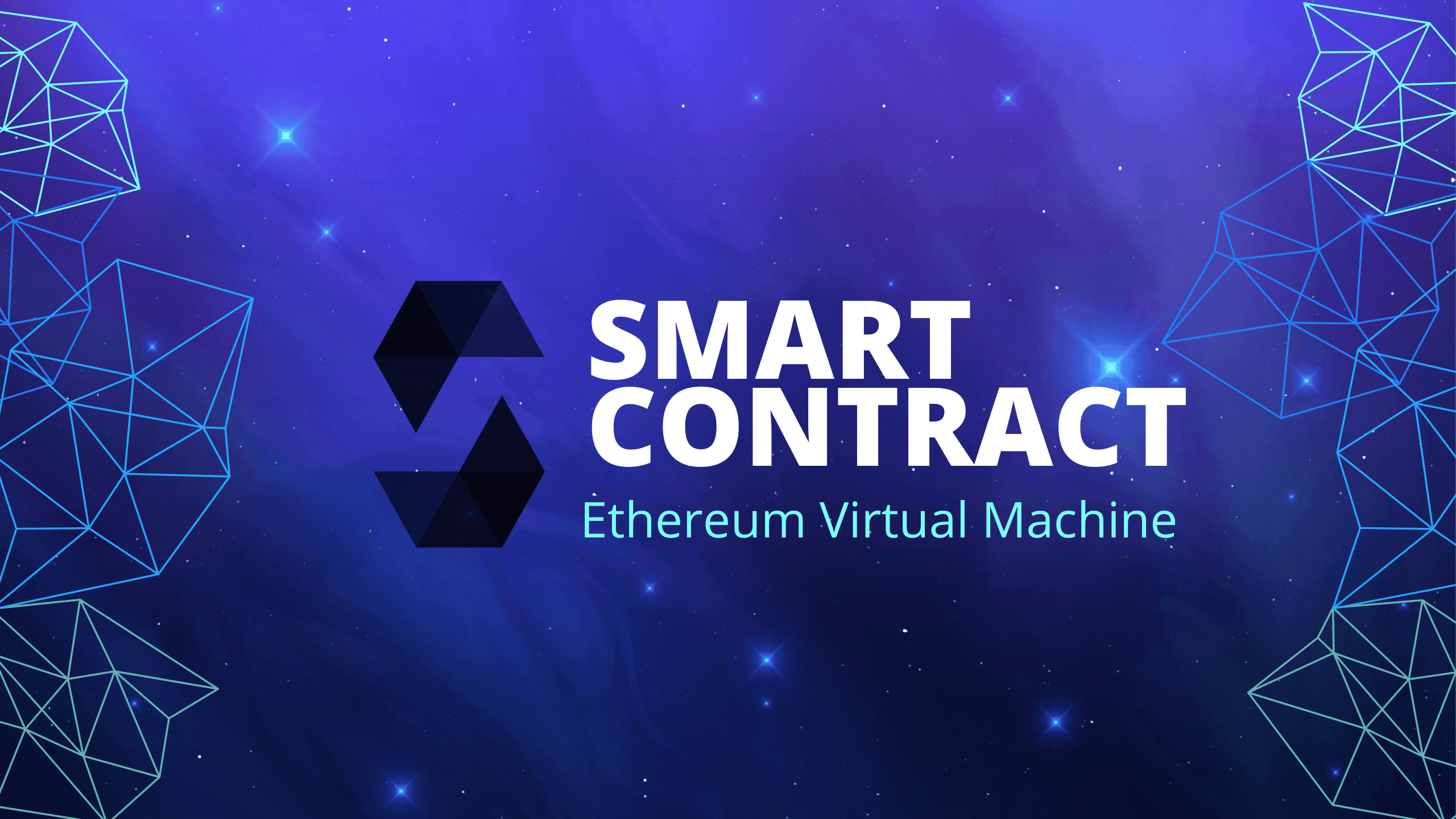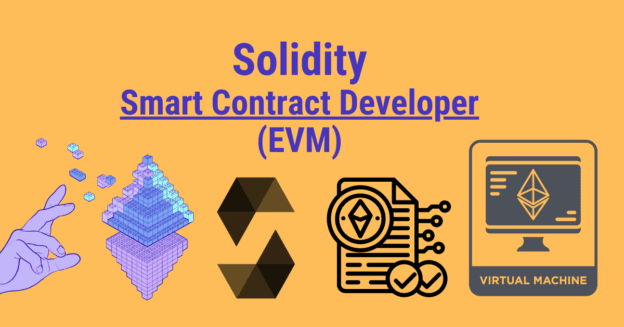Solidity Smart Contract Developer (EVM)
Video OnDemand Self-Paced Course with Exercises
This course is a session on writing Blockchain-based Smart Contracts, using the Ethereum Virtual Machine (EVM). There is an introduction to DApps. The program allows candidates to demonstrate the knowledge and skills to build EVM Smart Contracts using the Solidity language and Remix development environment. Learners are available for a micro-credential once complete with the course.
Estimated time to complete on-demand video instruction: 15 Hours
LIVE Instructor-Led Workshop
If you already have the Solidity Smart Contract Developer (EVM) Live Workshop reflected in your available courses, this workshop is already open to you. If you do not have access and would like to enroll, please do so here: Solidity Smart Contract Developer (EVM)
Who is this course for?
Solidity Smart Contract Developer (EVM) is for professionals with programming experience who want to learn and demonstrate the ability to develop and deploy Solidity Smart Contracts. Also understand how to perform the development, compile, and deployment section of the Smart Contract lifecycle.
This course is particularly great for developers looking to advance their understanding and capability within the blockchain community and/or industry. After the course, you can attain a Certificate of Completion validating your participation and Solidity Smart Contract Developer Microcredential.
Career Prospects:
- Working as a developer building Blockchain Smart Contracts and Web3 applications and the opportunity to achieve higher salaries.
- Get hired over those with no Blockchain knowledge skillset
- You can even start a project of your own!
Learner Outcomes:
Certificate of Completion: Ethereum Enterprise Smart Contract Developer Microcredential
- Understand the fundamentals of Blockchain and Smart Contracts.
- Hand-on experience with the Remix development environment for the EVM.
- Work with Solidity files, constructs, data, and results.
- Compile and deploy Smart Contracts to virtual runtime environments.
- Learn the intricacies of Smart Contract execution.
- Recall and compare various Blockchain use cases in different sectors.
- Learn the strategy to make use of Blockchain DApps and the development environments.
Questions We’ll Explore
- As an Ethereum Blockchain developer, how will Blockchain impact my industry and Career?
- In what types of environments will developers work?
- Who are the participants in a Smart Contract application?
- Will transitioning to Blockchain be difficult for my team?
- What EVM Blockchain development tools are available?
Graduates Earn:
- NFT Certificate of Course Completion
- Prepare to take the Web3 Certification Board (W3CB) Exam
- This course covers:
- 50% of the Blockchain Smart Contract Developer I Certification Badge
- 25% of the Algorand Deverloper Certification Badge
- 25% of the Hedera Hasgraph Developer Certification Badge
- This course covers:

Course Assessments
- Module 1 Quiz 1 – 5 Questions
- Module 2 Quiz 2 – 5 Questions
- Module 3 Quiz 3 – 3 Questions
- Module 4 Quiz 4 – 5 Questions
- Module 5 Quiz 5 – 5 Questions
- Module 5 Quiz 6 – 4 Questions
- Module 6 Quiz 7 – 6 Questions
- Module 7 Quiz 8 – 5 Questions
- Module 8 Quiz 9 – 5 Questions
- Final Exam – 45 Questions
Training Outline
Blockchain Technology Overview
- Smart Contracts
- Decentralized Applications
- Tokenization and DeFi
- Ethereum Virtual Machine (EVM)
Introduction to Ethereum Development Tools
- Remix
- Truffle
Solidity Development Language
- Contract Architecture
- Data Types
- Functions
- Control Structures
- Wallets
- addresses
- Payments
Programing in Solidity using Remix
- Remix Console and Modules
- Remix Compiler
- Reusable Libraries
Smart Contract 1
- Developing the First Smart Contract, writing functions and returning data
Smart Contract 2
- Adding additional functionality to a Smart Contract with more data and and more functions.
Smart Contract 3
- Detailed exploration of Smart Contracts with user addresses
Smart Contract 4
- Using enums data types to update state conditions
Smart Contract 5
- Using structs and mappings to create custom data types and manage them.
Smart Contract 6
- Introduction to making payments to other users
Smart Contract 7
- Send virtual cryptocurrency to another user address
Smart Contract 8
- Transfer cryptocurrency when certain conditions are true
Smart Contracts 9, 1 0 and 11
- Use ERC-20 standard to create fungible tokens. Explore development options such as imported reusable libraries.
Smart Contracts 12 and 13
- Use ERC-721 standard to create non-fungible tokens. Explore the metadata associated with each NFT. Also look into such options as imported reusable libraries for NFTs.
Optional Smart Contract 14
- A Smart Contract for voting. This Smart Contract will be used in a web based user application, distributed application or DApp.
Demo of a Decentralized Application (DApp)
- A DApp that calls the voting Smart Contract, Smart Contract 14
Demonstrations of Smart Contracts and DApps running on the Hedera and NEAR networks.
- A demonstration of a Smart Contract compiled into a Hedera DApp project and a demonstration of the DApp.
- The next demonstration is a look at a NEAR Protocol Smart Contract and a DApp calling the Smart Contract.

